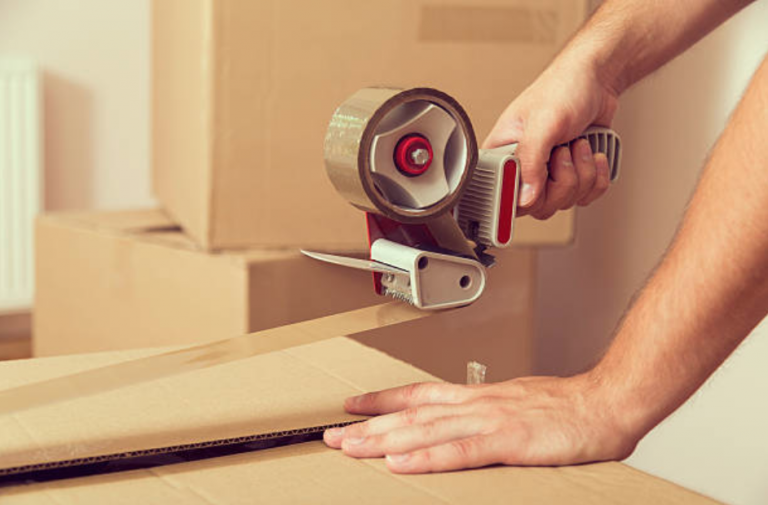How to Start an Event Planning Business
Are you daydreaming right now from your cube or home office about the notion of starting an event planning business? Perhaps you’ve been working in the events and meetings industry for several years and think that now is a good time to figure out how to work for yourself. Or maybe you’ve helped organize a few events in the past and feel that this could be your life’s passion. These are all good reasons to pursue this profession. But anyone who contemplates the fantasy of starting their own event planning business must follow some important steps before you even beginning to talk to clients.
Gain Event Planning Skills and Experience
Businesswomen discussing place settings in luncheon room
UpperCut Images/UpperCut Images/Getty Images
The long-term success of an event planning business will be based on the experience that the planner brings to his or her clients. That means, if you’re thinking about starting an event planning business, you should have a solid grasp as to what an event planner is, and make sure you have some solid skills:
- Verbal and written communications
- Organization and time management
- Negotiation and budget management
- Creativity, marketing, public relations and more
Determine Your Event Planning Market/Forte
Okay, let’s say you’ve been working in corporate meetings for five years and are ready to create a business. The first thing to realize is that your strengths are in the corporate arena. A common error many planners make is to say that they are willing to coordinate all kinds of events, including corporate meetings, weddings, fundraising galas and more.
Stop. While the urge may be there to offer a variety of services, the reason you’re ready is based on your collective previous experiences. In time you may handle a full range of events, but initially recognize that there are distinctive differences between corporate, association, nonprofit and social events. Determine your market accordingly.
Develop a Business Plan
Because you decided on your market, you may be thinking this is a good time to share the news about what you can offer to the world. Not so fast. Starting your own business isn’t as glamorous as such fantasies. Like everything else, starting an event planning business requires a business plan.
The good news is that several resources are available to help. Expert to Home Business Randy Duermyer provides some insights into business plan basics and walks you through the process. The U.S Small Business Administration is a good resource that publishes materials about writing business plans as well.
Designate Which Business Entity Fits Best for Your Firm
Now that you realize that creating an event planning business should be viewed as a “work in progress,” it’s very important to determine your business structure in the beginning. The most fundamental step is to make sure you decide what type of business entity works best for your plan. For this, it’s important to secure professional advice.
There are several options available to you, and it’s important to select the type of business organization that best represents your interests. The Expert to Tax Planning William Perez outlines the six forms of business organizations recognized within the U.S. by the IRS: Sole proprietor, C-Corporation, S-Corporation, Partnership, Trust and Non-profit organization.
Obtain Business Insurance
Business insurance is mandatory. Event planning businesses should secure general liability and other forms of insurance to protect the business owner’s interests. Several forms of insurance exist, so it’s best to speak with an insurance advisor to learn all of the requirements.
Whether you plan on starting a home-based business or if you will have a small office elsewhere, ask questions about these forms of insurance (but not limited to) as follows:
- General liability
- Product liability
- Home-based insurance
- Worker’s compensation
- Criminal insurance
- Health and other benefits

Pros of a Wedding Planner Home Business
There are several great benefits to becoming a wedding planner, including
- Weddings continue to be a pivotal event in a couple’s life, and as a result, people are willing to spend a good deal of money to have it done right.
- No education, training or certification is required to be a wedding planner.
- Celebrating romance can be a fun way to make a living.
- You can get started for little investment.
- You can run the business from home.
- If you pull off a good wedding, attendees will remember you for their weddings.

Work, Hours, and Pay
Wedding planners serve as the point person who must bring together all of the required professionals to execute a wedding event. That includes having ongoing and working relationships with people like the venue managers, catering managers, musicians and/or DJs, ceremony officiants, florists, photographers, furniture and linen rental companies, and more. And, of course, they must successfully market themselves to brides and grooms and their respective families.
Hours can be long, and because of the nature of the business, working weekends is a necessary reality. It can be a good job for someone who likes to be on the go, as much of the work involves meeting with vendors and potential clients at various locations. Potential clients often are only available to meet during the evening, so keep that in mind too.

Differentiate Your Services
You won’t survive if you are going to be just a “wedding planner.” To succeed in any industry, you need to have what is called a Unique Selling Proposition (USP). You could easily spend an entire day researching USP’s, and you probably should, but for the purpose of this article, you simply need to know that being specifically unique is a great thing.
There are wedding planners that focus on niche wedding themes, and others who cater only to a specific demographic. A profitable—and exhilirating—niche is planning adventure style weddings, allowing you to get paid while you travel to exotic locales. Really focusing on your target demographic will not only get you more clients, but will create the image that you are somewhat of an expert in your field.
Work Backwards on Your Leads
An easy way to understand what a prospect might need is to put yourself in the shoes of your potential customers and search through the options yourself. Do you automatically turn to the internet for ideas? If so, what were the first websites that caught your attention? What about family and friends who have hired planners in the past? A simple Facebook post might help you get valuable insights as to why some people chose their planner. You can even go direct, asking friends and family who were recently married exactly why they chose their planner.
Paying attention to those details will help you secure clients more effectively.
Develop Vendor Partnerships
Nothing is more valuable than reaching prospects at the time they are shopping for wedding-related services. Having a trusted vendor hand out your card to their customers is the best advertising you can get. Your target list here should include flower shops, wedding venues, stationery stores and of course, bridal wear outlets.
Some of these places will display your material at no charge but if you truly want results, then you should offer some incentives. You can partner with the stores to use their services exclusively, or even add coupon codes to your cards to track response rates and offer referral fees. Like most things money talks, and offering commissions can usually sway someone to your side.
Skills
Here are some beneficial skills an event planner will need to succeed in their career:
- Attention to detail: An event planner should be able to identify and correct minute details, which could include proper spellings of names and a guest’s dietary preferences.
- Organization: Event planners must be highly organized. They should be able to keep track of numerous tasks, vendors and to-do lists while keeping their clients happy.
- Networking: Because the events industry is heavily people-driven and relationship-based, event planners need a large network of diverse event professionals, such as photographers, caterers and bands. Planners will regularly call upon this network to make their events more memorable to their clients.
- Communication: Event planners need strong listening and speaking skills. They need to be able to understand what their clients are asking and share their own ideas and recommendations.
- Creativity: Creativity is essential when planning an event since the job includes duties such as designing a unique theme for a wedding and creating an affordable decorating solution that meets a small budget.
- Interpersonal: Event planners should be comfortable establishing and maintaining relationships with vendors, which will help make operations run more smoothly when they plan future events.
- Problem-solving: Events often run on a strict schedule, yet unexpected situations are unavoidable. Event planners must be resourceful and flexible so they can make quick decisions.




Recent Comments